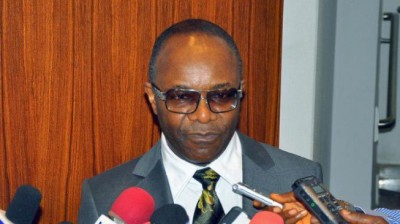
CESSPIT of corruption. Opaque revenue profile. Huge running costs. Non-remittance of revenues to Federation Account. Those are just a few of the negative impressions that the mere mention of NNPC evokes in the minds of both Nigerians and the international community. NNPC has become infamous as the “headquarters of corruption” in Nigeria. It was no surprise President Muhammadu Buhari identified turning the corporation around as one self-imposed task he was going to take very seriously indeed. To underscore his commitment to the NNPC project, the President appointed Dr. Emmanuel Ibe Kachikwu, the former Executive Vice Chairman and Legal Counsel of Exxon Mobile first as the Managing Director of NNPC and a few months later, the Minister of State, Petroleum to oversee the restructuring and reform of the sector responsible for 90% of the country’s revenues.
This was no mean assignment. NNPC, prior to Kachikwu’s appointment, was largely dysfunctional, a monument to decades of un-structured, un-strategic and wasteful leaderships. Though the corporation has retained a host of highly qualified technical hands, professionalism was practised in the breach for the profit of few at the expense of the nation’s interest in comparison with similar state owned oil companies in other parts of the world which in addition to meeting domestic demand for refined petroleum products have evolved into large, profitable hubs dominating the oil sectors in their regions.
A lot of work needs to be done, but there is a new spirit of efficiency in the NNPC and some good work has begun. The longstanding cynicism nursed by both local and international stakeholders is thawing. As the open institutional initiatives of Dr. Kachikwu unfolds, the corporation is slowly entering a new era of sustainable profitability, accountability and competitiveness.
One of the first steps that Dr. Kachikwu took towards building a new culture of transparency in the NNPC was to open up its books to the public in October 2015. He was forthright about his motivations, which he predicated on the need for Nigerians to know. The practice has become a monthly tradition. NNPC’s financial and operational statements are now easily available and accessible online and are no longer classified state secrets and subject of speculation and controversy.
Still on transparency, Kachikwu, in August 2015, cancelled all contracts for delivery of crude oil to refineries because they were unjustifiably expensive and checks showed that due process was not followed. It is estimated that this action saved the country an average of $150 million monthly. He conducted the first recorded public competitive bid for lifting Nigeria’s crude oil by the NNPC. The field was thrown open for competent industry players with track records of integrity and financial strength to bid. From 278 local and international companies that submitted bids, only 21 with the most responsive bids got the contracts in a process that was widely hailed as transparent and world class. The same open bidding process was applied to the coastal bid and the Offshore Processing Agreements (OPAs) bid.
It has been public knowledge that the NNPC was too large and the processes too wieldy and that the only way to make it efficient was to break it up and make it lean. Kachikwu has extracted in good time, presidential approval to unbundle the NNPC into four different enterprises namely – the upstream company, the downstream company, Midstream Company, and the refining group holding company. The four units are to run their operations independently. Furthermore, under an agenda named ‘20 Fixes’ Kachikwu identified and is at varying stages of progress on 20 critical issues that when fixed would help strengthen NNPC. Some of these are: to reduce and audit operational cost, restructure corporate centre and staffing, renegotiate existing contracts, streamline subsidy management, boost pipeline security, enhance transparency and accountability, achieve zero tolerance for corruption, rebrand NNPC and unbundle PPMC.
This year, Reuters, the international newswire service named NNPC as winner of the Thomson Reuters/PFI Magazine “Africa and Middle East Deal of the Year Award for 2015.” The award was in recognition of $1.2 billion multi-year drilling financing package for 36 Offshore/Onshore Oil wells under the NNPC/CNL Joint Venture initiated under the Accelerated Upstream Financing Programme executed at a signing ceremony in London in September, 2015.
Kachikwu has shown commendable drive towards ensuring that the Petroleum Industry Bill (PIB), a critical bill that will provide the legal framework for the reform of the oil and gas industry, is passed. From providing statistics which indicate that the country is losing an estimated $15 billion per annum due to the non-passage of the bill, to suggesting that it could be split and passed in phases, and not necessarily as a whole, he has shown innovation, passion and leadership deserving of praise.
His efforts to fix the refineries have started yielding good results. Early this year, January 5, 2015, it was announced that the nation’s three refineries in Kaduna, Port Harcourt and Warri have attained a combined daily production of over 6.76 million litres of petrol per day which is projected to increase to over 10 million litres per day by the end of January 2016. This is the best performance of the refineries in decades and will help greatly to reduce the amount of fuel imports and ease pressure on foreign exchange reserves.
The oil and gas industry is a huge competitive global business and Nigeria as a leading regional player in this market cannot continue to operate based on its local standards and expect to thrive and grow. What is expected of Nigerians and other players within the industry is to continuously support and encourage the visionary reforms coming into the petroleum industry under the guidance of President Buhari and Dr. Kachikwu, to seeing that Nigeria’s abundant oil resources are expended in the service of true national interest and not the greed of a few oligarchs.
GUARDIAN
END

Be the first to comment